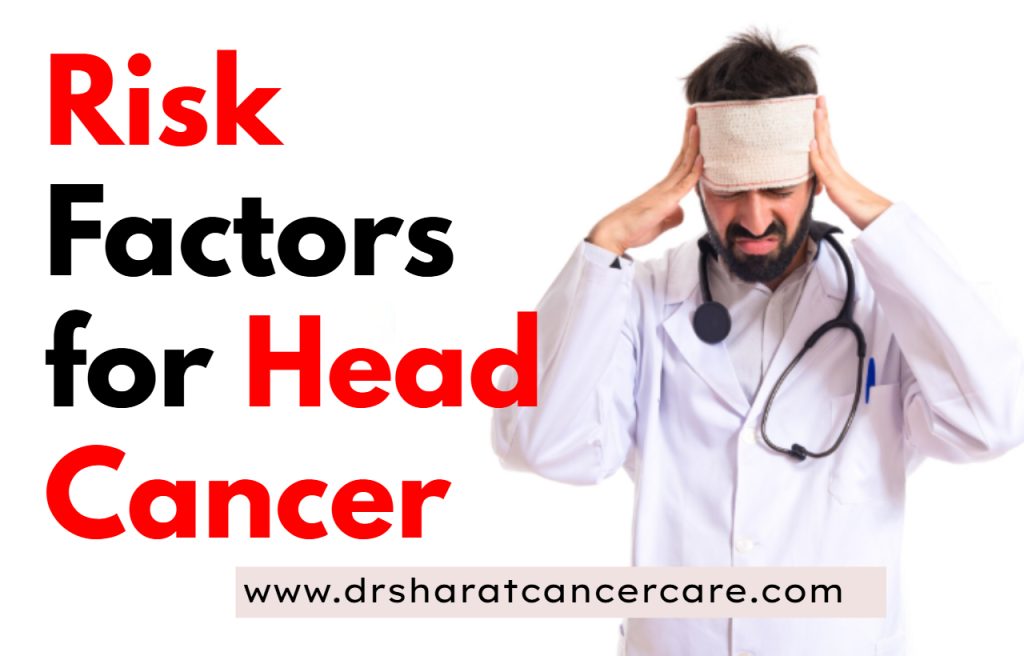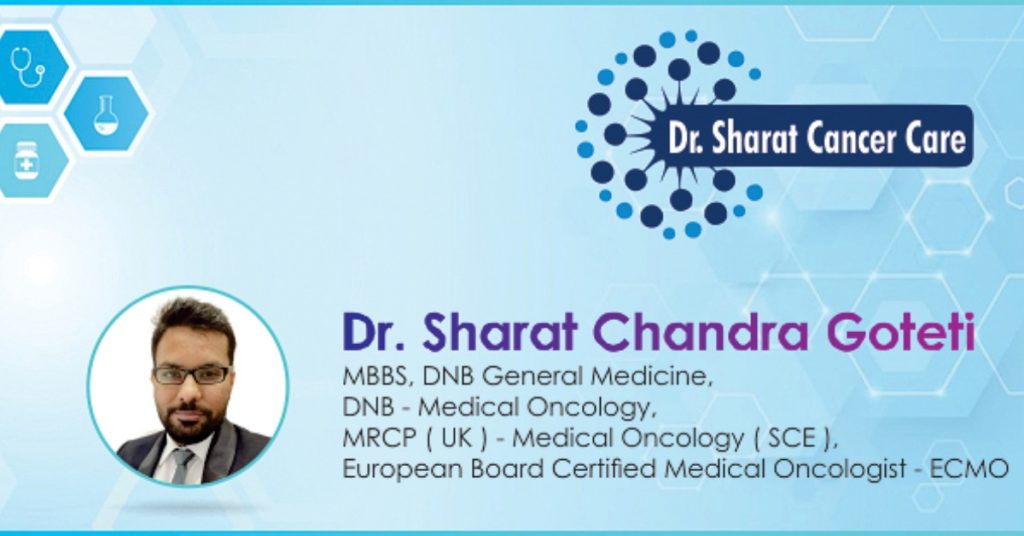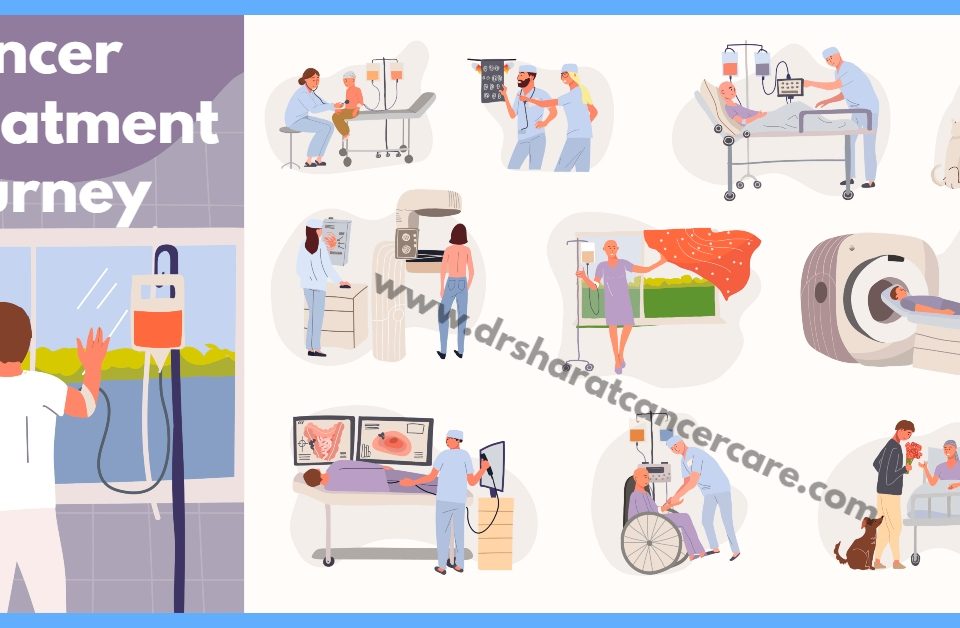A Closer Look at Head Cancer

Lung Cancer Treatment: From Diagnosis to Recovery
September 9, 2024
Uncovering the Truth About Neck Cancer
September 10, 2024Head cancer can be an insidious threat, silently evolving within the head, including the scalp, face, and brain. Often, it develops without clear, early symptoms, making early detection challenging and emphasizing the need for vigilance.
What is Head Cancer?
● Scalp Cancer: Tumors that develop on the scalp’s surface. These can present as persistent sores or unusual growths that don’t heal.
● Facial Cancer: Affects areas such as the skin, sinuses, and bones of the face. Symptoms can include abnormal lumps, persistent pain, or noticeable changes in appearance.
● Brain Cancer: Involves tumors in the brain or surrounding areas. Common signs include severe headaches, changes in cognitive function, or new neurological symptoms
.
● Paranasal Sinus and Nasal Cavity Cancer: Cancers in the cavities around the nose. Symptoms might involve nasal obstruction, frequent nosebleeds, and facial swelling.
The complexity and variety of head cancers can make early detection difficult. Symptoms often mimic less severe conditions, leading to delays in diagnosis.

Risk Factors for Head Cancer
Several factors can increase the likelihood of developing head cancer
● Tobacco Use: Smoking is a significant risk factor, linked to cancers in the mouth, throat, and larynx.
● Excessive Alcohol Consumption: Drinking alcohol in large amounts regularly can elevate the risk, especially when combined with smoking.
● UV Exposure: Prolonged sun exposure without proper protection can increase the risk of skin cancers on the scalp and face.
● Exposure to Carcinogens: Occupational exposure to certain chemicals and substances can raise cancer risk.
● Genetic Predisposition: A family history of cancer can increase susceptibility, making genetic screening and early monitoring crucial
Recognizing the Symptoms
Head cancer symptoms can vary based on the type and stage of the disease. Key symptoms include
| Head Cancer Symptoms | Description |
|---|---|
| Persistent Scalp Sores | Non-healing sores or growths on the scalp that may bleed or become painful. |
| Facial Abnormalities | Changes in facial structure or persistent pain that does not subside. |
| Severe Headaches | Unexplained, intense headaches not relieved by standard treatments. |
| Neurological Changes | Includes seizures, balance problems, or cognitive impairments. |
| Nasal Problems | Ongoing nasal congestion, bleeding, or a sensation of blockage. |
| Vision Issues | Blurred or altered vision, possibly indicating brain involvement. |
Advanced Diagnostic Tools
Precision is key in the battle against lung cancer. We utilize the latest diagnostic tools and techniques to ensure accurate detection and staging. Advanced imaging technologies such as PET scans and CT scans, along with biopsy procedures, help us understand the extent of the cancer and formulate the most effective treatment strategies.
These symptoms warrant prompt medical attention to ensure early diagnosis and treatment.
Head Cancer Poses a Significant Health Challenge
● Global Statistics: Over 500,000 new cases of head and neck cancers are diagnosed globally each year. This statistic highlights the widespread nature of these cancers and the urgent need for awareness and proactive health measures.
● Impacting India: In India, head cancers are alarmingly prevalent, with high rates of oral and skin cancers largely due to extensive tobacco use and UV exposure. Oral cancers alone represent a substantial portion of cancer cases in the country.
● Survival Rates: The 5-year survival rate for head cancer varies significantly, generally ranging from 40% to 70% based on the cancer type and stage. Early diagnosis and treatment are crucial in improving these rates, as late-stage cancers typically result in poorer outcomes
These figures emphasize the importance of understanding the risks and seeking timely medical care
For those facing head cancer, expert medical care is paramount. Dr. Sharat Chandra, a leading oncologist at Dr. Sharat Chandra Cancer Care, specializes in treating various forms of head cancer. His extensive experience and advanced treatment techniques provide a comprehensive approach to managing and overcoming the disease.
Expert Head Cancer Care with Dr. Sharat Chandra

Dr. Chandra’s approach involves thorough assessments, personalized treatment plans, and compassionate care throughout the treatment process. His dedication to providing top-tier cancer care and his commitment to patient outcomes make him a top choice for effective management of head cancer. Head cancer is a serious and often stealthy disease that can drastically impact one’s quality of life if not addressed promptly.
Understanding the risk factors, recognizing symptoms, and seeking expert care are crucial steps in improving treatment outcomes. Dr. Sharat Chandra offers hope and expertise for those battling head cancer, ensuring a pathway to recovery and a healthier future.



